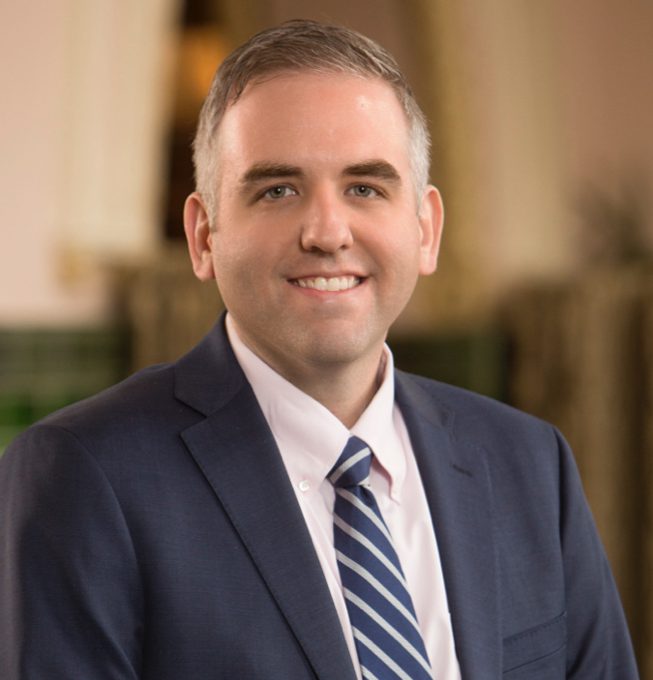April 12, 2023
A High-Level View of Schwab

Recent news stories have many concerned about the stability and safety of Schwab Bank and Schwab's custodian/broker dealer business. In this episode of Buckingham Weekly Perspectives, Chief Investment Officer Kevin Grogan breaks down the issues at Schwab, how their circumstances are different than the Silicon Valley Bank failure and why we believe client assets are likely safe.
Transcript:
Recent articles in the news media have started to raise concerns about the stability and the safety of assets held at either Schwab Bank or Schwab's custodian/broker dealer. And we of course here at Buckingham understand that whenever you read articles talking about issues at your custodian or at your bank, that can cause a lot of anxiety and stress because that's where your life savings are in many cases. This video will attempt to bring some clarity to some of that discussion and hopefully put your mind at ease a bit about what's going on at Schwab. This will cover high-level issues, but we did put out a longer article on this topic that was written by my colleagues Jake Fechter and Larry Swedroe. If you would like a deeper dive at the conclusion of this video, you can of course check out that article as well.
Our Predictions for Schwab
Kevin Grogan: I figured I'd start with the conclusion up front, which is that we think Schwab is likely to make it through these current challenges. And really the main high-level reasons for why we have confidence in Schwab is that it's still a very profitable business, number one, and number two it has highly diversified sources of revenue. So, between those two factors, we think that Schwab will make it through current challenges that are facing lots of different financial services companies these days.
Why is there concern?
Kevin Grogan: Starting with the primary reason why there's concern at all is because Schwab, kind of similar to Silicon Valley Bank, purchased longer term treasury securities, which have fallen in value as interest rates have increased. Schwab at the end of 2022 had unrealized losses of almost $29 billion, which is obviously a huge number in terms of unrealized losses on that treasury bond portfolio that they held.
The Performance of Schwab Stock vs. the Safety of Client Assets
Kevin Grogan: And in understanding what this means and putting it into context, I think it's important to differentiate between the performance of Schwab's stock and the safety of client assets at Schwab. These are two separate issues which of course are related to some degree, but many of the articles that you read in the media about Schwab are really talking about the performance of Schwab stock. Some analysts expect the price of Schwab stock may fall in the short term, which of course it could be true or could not be true. It's very difficult to predict the performance of any individual stock. But if Schwab's stock prices fall another 5 to 10%, that doesn't really have a material impact on the safety of client assets at Schwab. So that's the first important thing to differentiate.
Kevin Grogan: And then to make things even more complex, you also have to differentiate between Schwab's bank and Schwab's broker dealer. The broker dealer is where your mutual fund and stock assets are held, whereas the bank would be where you might have a deposit at Schwab Bank in a savings account or something along those lines. So those are two different business lines that are separate from one another. Starting with the broker dealer, it is important to note that Schwab is the largest public broker dealer in the United States, and all broker dealers in the United States are subject to certain regulatory requirements that help protect client assets. Number one, brokerage firms must meet minimum capital requirements to reduce the likelihood of a broker dealer becoming insolvent. Second, brokerage firms must keep customer securities separate from their own securities, so that they can't be mixed together, that’s another safeguard in place. And then finally, a brokerage firm must be members of the SIPC, which is kind of the brokerage version of the FDIC which ensures customer securities up to about $500,000. These are some of the protections that are kind of baked into the regulatory framework here in the United States to protect customers from a broker dealer potentially failing.
Kevin Grogan: Moving over to the bank, I think one important difference between Schwab Bank and Silicon Valley Bank is just the nature of their depositors. Silicon Valley Bank’s depositors, almost all of them, were over FDIC limits with their deposits, meaning that they weren't protected by the FDIC insurance because they held more than $250,000 per depositor. At Schwab Bank, more than 80% of their depositors are protected by FDIC insurance limits and are under those limits. It is just a totally kind of mirror image of each other with respect to what their depositor base looks like. So, if you think about Schwab Bank, there really isn't incentive for those depositors to pull their money out if they’re under the FDIC insurance limit. So, you have those protections, and you aren't as likely to see a bank run like we saw with Silicon Valley Bank. Now where things get a little bit blurry, if you are a customer of say Schwab's custodian and you have holdings in the sweep money market account, those are actually held at Schwab Bank. You could in theory, and likely if you have your assets at Schwab, are a client of both Schwab Bank and Schwab's broker dealer. But the Schwab Bank sweep account allocates that cash to two different banks; you have about $500,000 of FDIC insurance limits if you are a client of Schwab's broker dealer.
Kevin Grogan: As I said to kick off the video, we think it's highly unlikely that Schwab will become insolvent. But of course, you know , we never want to treat the unlikely as impossible. So, we do think about these things because of course, it affects our clients to a great degree if something bad were to happen to Schwab, which in turn would affect our business significantly. So we have thought through these issues, and I think it's important to know looking back at history that there have been broker dealers that have failed historically. When a large broker dealer has failed, clients haven't lost out from those failures. When Drexel Burnham Lambert failed in 1990, customers were made whole in that example. Bear Stearns failed in 2008. It was purchased by J.P. Morgan, again customers were made whole there as well. And then also when Lehman Brothers failed, it was wound down by SIPC, and again, customers were made whole with their holdings that they held at Lehman Brothers in that instance. And so again, none of these are fun.
Kevin Grogan: We think in the unlikely event that something bad were to happen to Schwab, customer assets are typically held separate from the custodian’s assets. And that is really your protection if something bad were to happen to your custodian, whether you're a custodian of Schwab or any other custodian that you might be working with. And again, we understand that these issues can cause a lot of anxiety and stress, and so if you do have further questions don't hesitate to reach out to your advisor.
If you have any questions please feel free to drop us a note: buckinghamstrategicwealth.com/contact-us
Category
InvestingContent Topics
About the Author

Kevin Grogan
Chief Investment Officer



